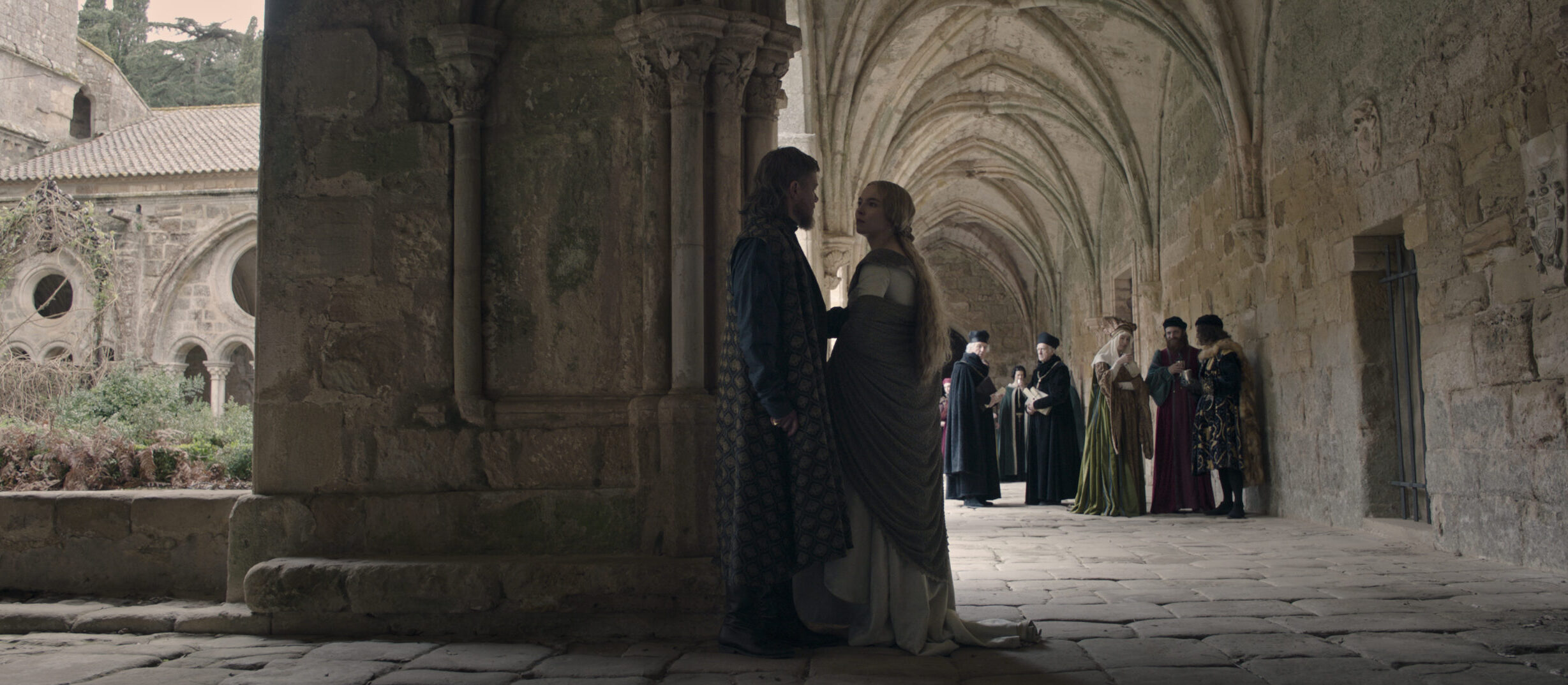

“There is no right, there is only the power of men.”
Using Akira Kurosawa’s Rashomon as a template (and maybe a little bit of Sam Peckinpah’s Straw Dogs too), Ridley Scott’s The Last Duel attempts to cast a 14th century costume drama as a commentary on modern social issues. It mostly succeeds. Thrice conveying the contradictory recollections of a purported rape—first from the perspective of the woman’s husband (Matt Damon), then the accused (Adam Driver), and then the victim (Jodie Comer)—it culminates in a judicial duel in which a knight and a squire, formerly loyal friends, fight to the death. Written by Damon, Ben Affleck (who co-stars as Count Pierre d’Alençon), and Nicole Holofcener, the film refrains from tilting too far into outright preaching but does suggest that neither man is capable of perceiving the object of their affections as a fully realized and independent person. Indeed, Sir Jean de Carrouges (Damon) seems less motivated by vengeance for the crime against his wife than the opportunity to bite back at those who mock his social and economic decline. At times—especially when it comes to the performances, which range from Comer’s haunted work to Affleck’s high-camp portrayal—the film seems uncertain how exactly it wants to marry itself to its subject matter. Are we holding it at a scornful distance, or playing it straight? Perhaps most interesting and hardest to love is Damon’s performance, which is drastically different between the three chapters. In any case, the concluding action scene is brilliant—ending with a shocking image that rivals King Baldwin’s unmasking in Kingdom of Heaven—and seems to be where Scott focused his creative attention.